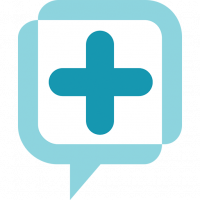Most hospitals and health systems recognize the importance of consumerism, but the majority have not put consumerism into action.
That’s one of the revealing findings in a 2016 study by the consultant group Kaufman, Hall & Associates, LLC. The report is based on a detailed online survey sent more than 1,000 executives at U.S. hospitals and health systems. More than 100 organizations participated in the survey.
A key theme in the report is that consumerism is not a program or problem, but an important strategy to growth. As healthcare options grow and consumers shop for lower pricing and a better experience, customer understanding will be essential to attracting and retaining patients.
Insights into consumer behaviors, needs, and expectations are the foundation of building consumer-centric strategy and tactics. 66 percent of survey respondents said that consumer-related insights are an above average priority, but only 23 percent stated that they have advanced capability to develop those insights. Getting the necessary data is challenging, and according to one executive, “we have inpatient information, but no strong outpatient data, so it’s very hard to get a good read on the total read on the market.”
Patient experience is one of the most important and least understood areas of consumerism, according to the survey. 79 percent of respondents place above average priority on the need to understand and improve patient experience, but only 18 percent use advanced means to understand and improve the patient experience.
Respondents, through survey findings and interviews, identified several barriers to implementing consumerism within their health systems. Barriers include resistance to change, lack of urgency, competing priorities, skepticism, lack of clarity, and absence of data and analytics.
Consumers have more choices related to health care than even a few years ago. Enabled by the internet, consumers are expecting a new level of convenience, access, and price. At the same time, health systems are trying to retain patients and engage them in health improvement.
So how should hospitals and health care systems react to consumerism?
Find ways to engage patients and provide technology to improve the patient experience. That might mean providing personalized information through health assessments and self-care planners that identify risk or quality of life factors that may need care or treatment from your facilities. It may mean providing online scheduling for appointments.
Just like any other business, healthcare providers need to understand and know their customers (aka patients), provide what they want, and deliver it better than the competition.















 Thank you for your interest.
Thank you for your interest.